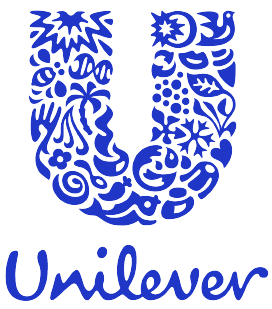What do we mean by sustainably sourced?
Sustainable sourcing is at the root of agricultural resilience and a more stable and efficient food supply. Over the last 15 years, Unilever has been working with suppliers and farmers to buy sustainably grown crops in accordance with Unilever’s “Sustainable Agriculture code” (SAC) which has been replaced in 2024 by Unilever’s “Sustainable Agriculture Principles” (SAP). Today, Unilever covers 12 key crops: Cocoa, Vanilla, Tea, Paper & Board, Palm Oil, Coconut oil, Dairy, Vegetables & Herbs, Soy oil, Cereals, Rapeseed, Cereals & Starches (including Wheat, Corn, Rice etc) with this.
In 2024, 79% of our 12 key crops were sourced sustainably, and we’re committed to reach 95% volume of key crops to be verified as sustainably sourced by 2030.
In 2024, we raised the benchmark with the release of our updated Sustainable Agricultural Principles (SAP) (PDF 4.29 MB), which underpin our programme. As set out in the SAP, we verify our key crops as sustainable using a range of widely recognised benchmarked certification programmes and standards.
Detailed description of Sustainable Agriculture Principles (SAP):
Unilever's commitment is to have 95% volume of key crops externally verified as sustainably sourced by 2030. This will be achieved through alignment with the Sustainable Agriculture Principles via accepted third-party standards.
The Sustainable Agriculture Principles are a collection of good practices intended to codify important aspects of sustainability in farming, plantation, and supply chain management. Unilever uses these principles to assess and benchmark third-party agricultural standards, codes, assessments, and programmes to ensure they align with Unilever's commitments to sustainable, responsible, and transparent production. Suppliers who wish to supply Unilever with sustainably sourced raw materials are now required to adopt and comply with one of the third-party standards that has been benchmarked and accepted against the SAP.
The SAP is structured around six core Sustainable Agriculture Principles to guide suppliers in ensuring integrity and legal compliance, protecting and regenerating nature, driving climate action and building resilience, respecting human rights and promoting positive social impact, ensuring good animal welfare (where applicable), and committing to continuous improvement in agricultural practices. In depth:
- Ensure integrity through legal compliance, transparency and responsible business practices. This principle covers topics like legal compliance, responsible business conduct, data protection, traceability, and transparency.
- Protect and regenerate nature. This principle focuses on trying to maintain and regenerate soil health, supporting appropriate land use (including avoiding deforestation and conversion), conserving water resources, reducing waste, and preventing pollution. It also addresses protecting and regenerating nature and biodiversity.
- Drive climate action and build climate resilience and adaptation. This principle encourages practices that minimize greenhouse gases, improve energy efficiency, and build climate resilience and adaptation within the supply chain.
- Respect and promote human rights and drive positive social impact. This principle covers respecting human rights, improving working conditions, contributing to livelihoods, and operating in a safe and healthy environment in line with international standards.
- Ensure good animal welfare and promote the health of livestock. This principle, relevant for suppliers of livestock-related goods, aims to safeguard animal welfare by upholding principles like the Five Freedoms, focusing on safe housing, healthy feed, animal health, appropriate breeding, and respecting animal freedoms.
- Commit to and support a process of continuous improvement. This principle underlies all others and promotes a commitment to continuous improvement in sustainable agricultural practices, including implementing improvement plans, measuring data, reporting transparently, setting commitments, and embracing technological innovations.
For full details on these Principles, please refer to our Sustainable Agriculture Principles pages, which outline the required and recommended practices: https://www.unilever.com/files/unilever-sustainable-agricultural-principles-2024.pdf



